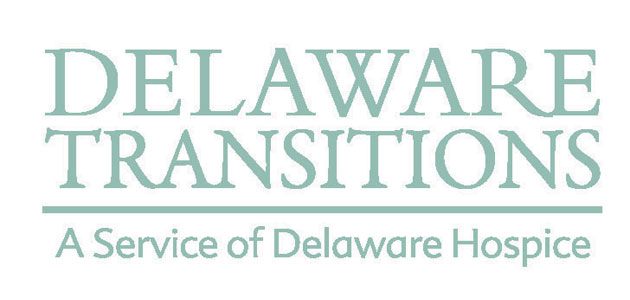Learn more at www.delawaretransitions.org/newsletter
Getting help to pay for care
 Medicare does not cover home care, assisted living, or memory care. Most families have to rely upon their own resources.
Medicare does not cover home care, assisted living, or memory care. Most families have to rely upon their own resources.
A reverse mortgage may be an option for home care. If long-term care insurance is available, it will likely cover home care, assisted living, memory care, or a nursing home. (Talk with the Veterans Administration about these benefits for vets.)
For a nursing home, Medicare will generally cover a portion of the cost for short-term care only. Medicaid will usually cover the gap, but this is available only for those with low income. The rest must pay out of pocket or have supplemental insurance. Permanent residence in a nursing home is not covered.
It’s important to understand the restrictions for each of these options.
What is a "Medicaid spend down"?
There are two forms of government health insurance for nursing home expenses:
- Medicare. Insurance for older adults (age 65+), regardless of income and assets. (Assets include money and belongings, such as a house or car.)
- Medicaid. Income-based insurance for individuals who have assets of $2,000 or less. The state where your relative lives may have its own name for this program.
Medicaid will sometimes pay when Medicare will not. Speaking very generally, Medicare pays for the first one hundred days in a nursing home after a hospitalization. If a person needs to stay longer—or permanently move into the facility—they must cover the cost from their own savings. Once nearly all their resources have been spent, they can apply for Medicaid, which will pick up the rest.
How to become eligible for Medicaid. Essentially, one needs to reduce income and eliminate assets. It’s tempting to dole out early inheritances to “spend down” assets. Perhaps by giving the house to one’s children. Or passing their savings accounts to grandchildren. Beware! The government will look back for asset transfers in the past thirty months to five years. Persons deemed to have spent down by gifting are disqualified from Medicaid for an extended period of time. There is no wiggle room on this.
Get legal advice YEARS before taking action! Spend-down restrictions vary by state and are astoundingly complex. If you think Medicaid will be part of your loved one’s financial strategy, consult an elderlaw attorney immediately! It’s never too early. There are ways to protect assets, but they require attention to detail and planning years in advance.
Return to topIs a reverse mortgage appropriate?

If your loved one is worried about having enough money to pay for care, they may be considering a reverse mortgage.
A reverse mortgage enables a homeowner to turn some of the equity in a home into cash. You might think of it as an advance payment on the accrued value of the home.
An approved lender will give your loved one money once a month or in a lump sum. Interest is charged as the money is drawn against the house. When the borrower is no longer living in the house, the loan generally must be repaid. Usually this happens by selling the house.
A reverse mortgage may sound appealing, but it is a very complicated loan that should be considered carefully. Be sure you understand these points:
- The reason for getting the loan. Counselors strongly advise against using it for living expenses. If the money is to pay for care—at home or in a facility—you should consult with a financial or legal professional to explore all payment options.
- Cost of the loan. The loan origination fee on a reverse mortgage is high—usually 10 percent of the loan amount.
- Taxes, insurance, and home maintenance. Some lenders require that money be borrowed—with interest charged—and “set aside” to cover these expenses.
- Surviving spouse. Once the primary borrower dies or moves out—to a nursing home, for instance—the house may need to be sold to repay the mortgage. A surviving spouse may have to leave.
- Inheritance. The mortgage must be paid back when the borrower dies. This may require that the heirs sell the house. Depending on how much is owed, there may be no money left from the sale.
Before your relative takes out a reverse mortgage, talk with a HUD-approved reverse mortgage (HECM) counselor. Guidance from these professionals is free or very low cost. Call 800-569-4287 for a referral
Return to topUsing long-term care insurance
Your relative may have bought long-term care insurance to cover the expense of care when help is needed. Activating the policy takes some lead time. It’s wise to learn all the steps and definitions so you can be strategic with your timing.
Types of care covered. Read the policy and see what kinds of care it will pay for. Options may include nursing homes, assisted living facilities, or private care at home. Some may cover the services of a care manager. Check also for exclusions.
“Elimination period.” Think of this as a deductible measured in time. Check to see if the policy requires that you pay out of pocket for care for the first 30–120 days AFTER you have initiated the claim.
“Benefit trigger.” To open a claim, you must prove the need for assistance with personal care tasks: Bathing, dressing, using the toilet, eating, or walking. In the case of dementia, such as Alzheimer’s, testing will be needed to prove the degree of memory loss.
Length of the benefit. Most policies have a three-year or five-year limit. Be cautious about starting your loved one’s policy too early. If your relative has dementia or any type of long-lasting illness, you may want to delay opening a claim until they are quite impaired. (But don’t wait too long!)
The claims process. Each company is different, but the process starts with a “claims packet” that includes
- claim forms. This is a statement of needs and permission to obtain information from providers.
- physician’s statement. This is a critical document in which the primary care doctor certifies your relative cannot perform personal care tasks.
- nursing assessment and plan of care. This is usually completed by a nurse from the company providing care.
- provider statement. The home care agency, facility, or care manager you choose must submit a document with their licensing and certification numbers.
Contact us at 302-478-5707
